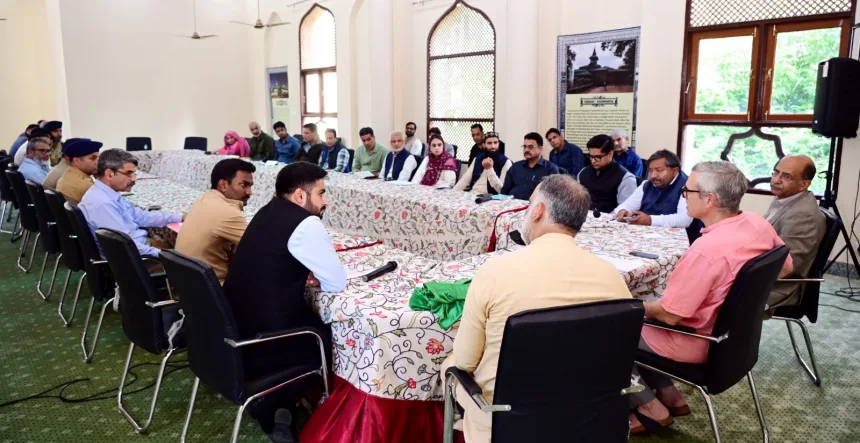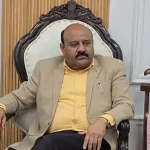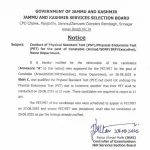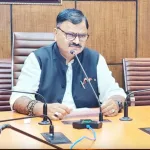Chief Minister Omar Abdullah today chaired a high-level meeting at Hazratbal Shrine to review the arrangements being put in place for the forthcoming Eid-e-Milad-un-Nabi (SAW) being celebrated during Rabi al- Awwal, thethird month of Islamic lunar calendar.
Describing the occasion as one of the most important events in the Muslim religious calendar, the Chief Minister stressed the need to make every possible effort to ensure the celebrations are conducted smoothly and devotees face no inconvenience.
Reviewing the arrangements, the Chief Minister highlighted traffic management and facilitation of devotees as the foremost priorities.
He underlined the need for proper parking arrangements, adherence to designated traffic routes, provision of shuttle services, and strict regulation of fare charges to prevent overcharging of devotees. “People must not face any inconvenience in reaching the holy Hazratbal shrine. Transport should be managed in a manner that ensures safety, comfort, and it should be available easily and frequently,” he stated.
On security arrangements, Omar Abdullah called for visible police presence, both male and female, to instill a sense of safety and prevent incidents of theft or disorder. He directed that sufficient deployment of lady police should be ensured in sensitive zones.
The Chief Minister instructed the Power Development Department to provide uninterrupted electricity during the Eid Milad celebrations. He said alternate arrangements such as generators with adequate fuel should be kept ready to deal with emergencies.
On sanitation, the CM stressed the use of newly procured mobile toilet units, regular deployment of sanitation workers, and proper waste management in and around shrine. He also directed to maintain availability of dewatering pumps, ambulances, fire tenders, health clinics, and standby hospitals to meet any contingency.
The Chief Minister further underscored the need to regulate the activities of NGOs and voluntary groups providing food, water, and other services. He directed that such camps should be set up in designated areas to avoid congestion and obstruction in movement.
Omar Abdullah also instructed all officers to ensure similar arrangements at other major shrines across Srinagar, including Aasar-i-Sharief Hazratbal, Jenab Sahib Soura, Aasar-i-Sharief Kalashpora, and other prominent religious locations, so that uniform facilities and safety measures are available to devotees everywhere.
The Chief Minister also stressed on making adequate availability of safe and clean drinking water which must be ensured throughout the religious occasion, along with sufficient deployment of public transport. He also directed the Food Safety Department to carry out regular checks to maintain quality and hygiene of food items being distributed and sold during the occasion.
Earlier, Deputy Commissioner Srinagar, SSP Srinagar and heads of departments briefed the Chief Minister about the preparations, including arrangements for electricity, health services, medicines, paramedics, mobile sanitation units, and parking facilities.
The meeting was attended by Advisor to the CM, Nasir Aslam Wani, MLA Hazratbal Salman Ali Sagar, Additional Chief Secretary to the CM Dheeraj Gupta, Director Food, Civil Supplies & Consumer Affairs, Commissioner SMC, Director Health Services Kashmir, Superintending Engineer R&B, Assistant Commissioner Revenue, SDM East, CMO Srinagar, Tehsildar Khanyar/North, Assistant Commissioner Food Safety, senior officers of Traffic, PHE, PDD, Fire & Emergency Services, officers of other line departments, Tehsildar J&K Wakf Board, and administrators of prominent shrines.
Earlier in the day, the Chief Minister visited the Hazratbal Shrine, which houses the revered Holy Relic of Prophet Muhammad (SAW), and took stock of the arrangements being made for the forthcoming observance of Eid-e-Milad-un-Nabi (SAW).
During his visit to the shrine premises, Omar Abdullah interacted with the shrine management, Wakf Board officials, and officers of the district administration. He was briefed about the measures being put in place to facilitate the expected large gatherings of devotees, particularly to address the issues of sanitation, electricity, water supply, health services, and fire safety.






